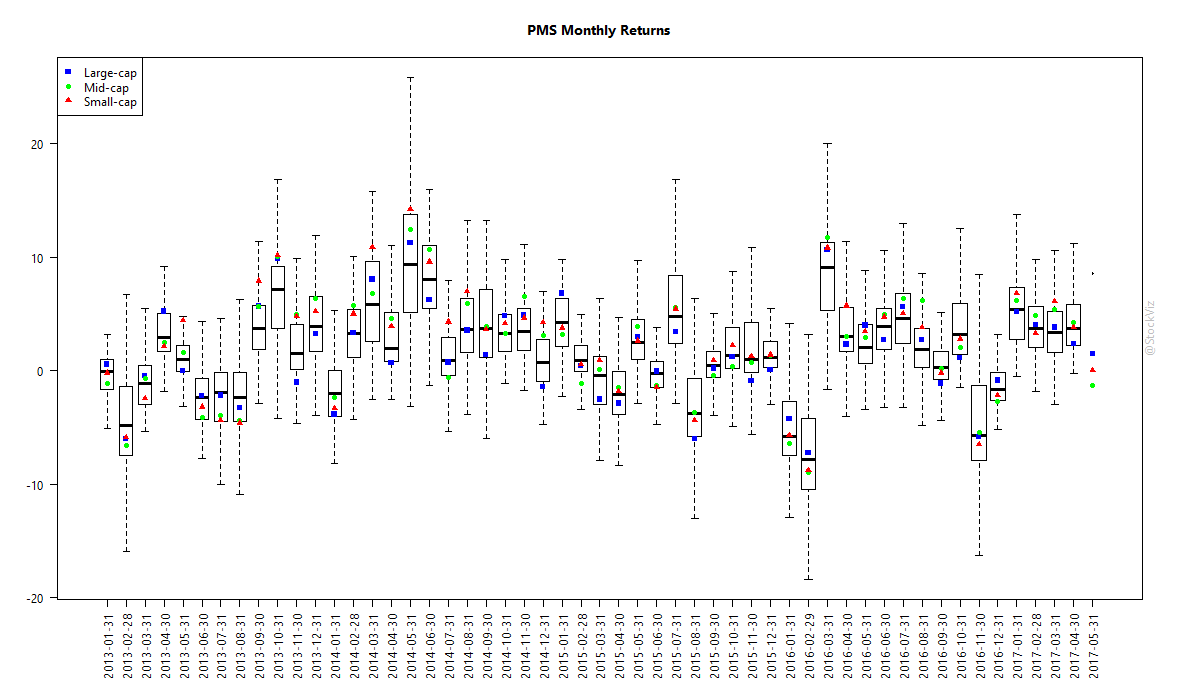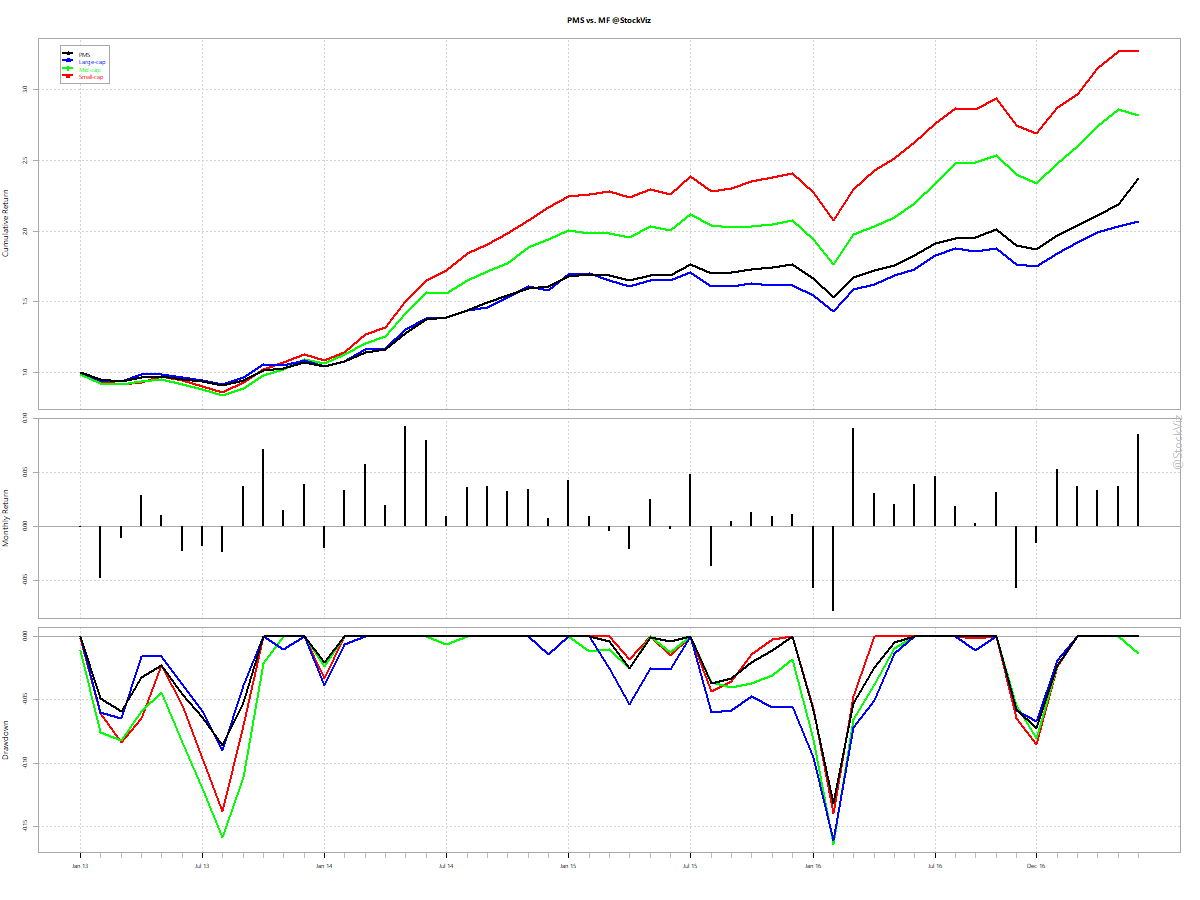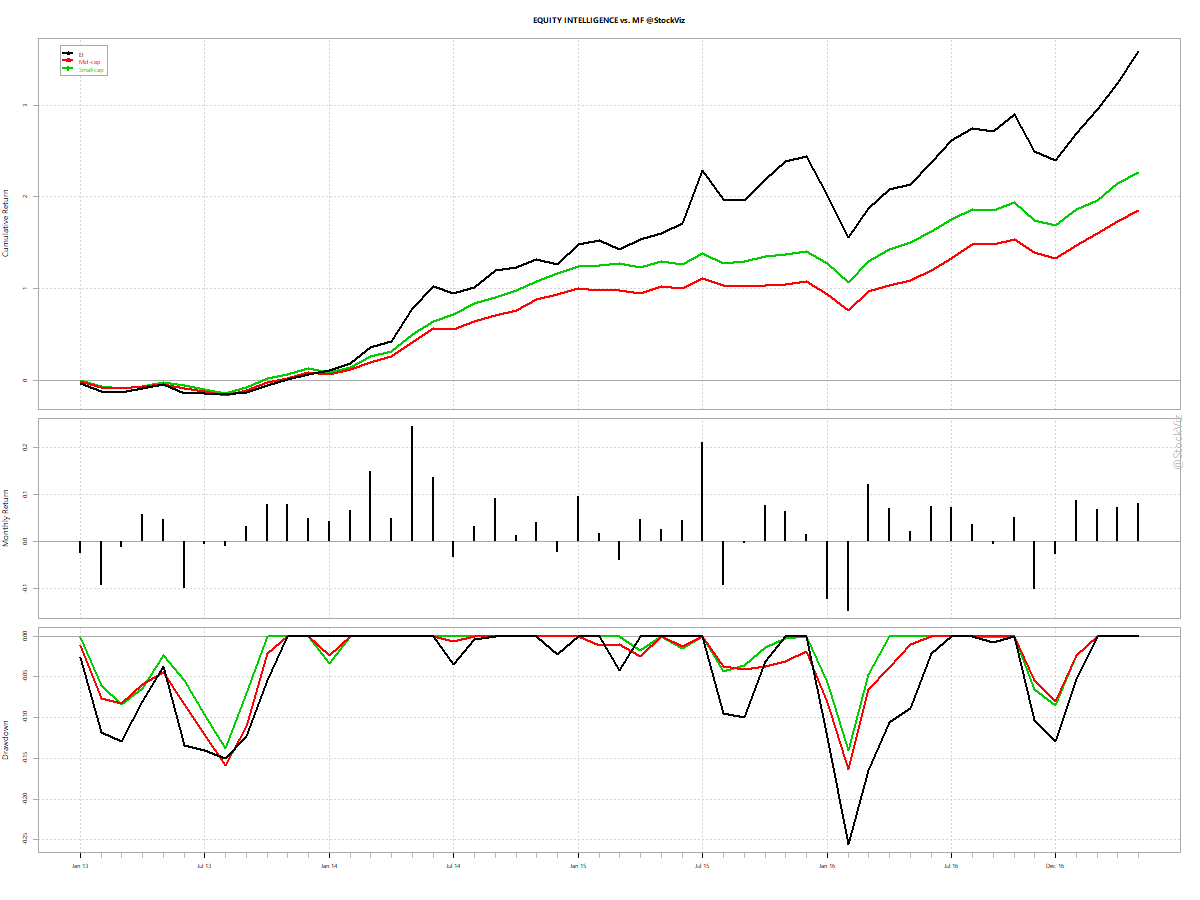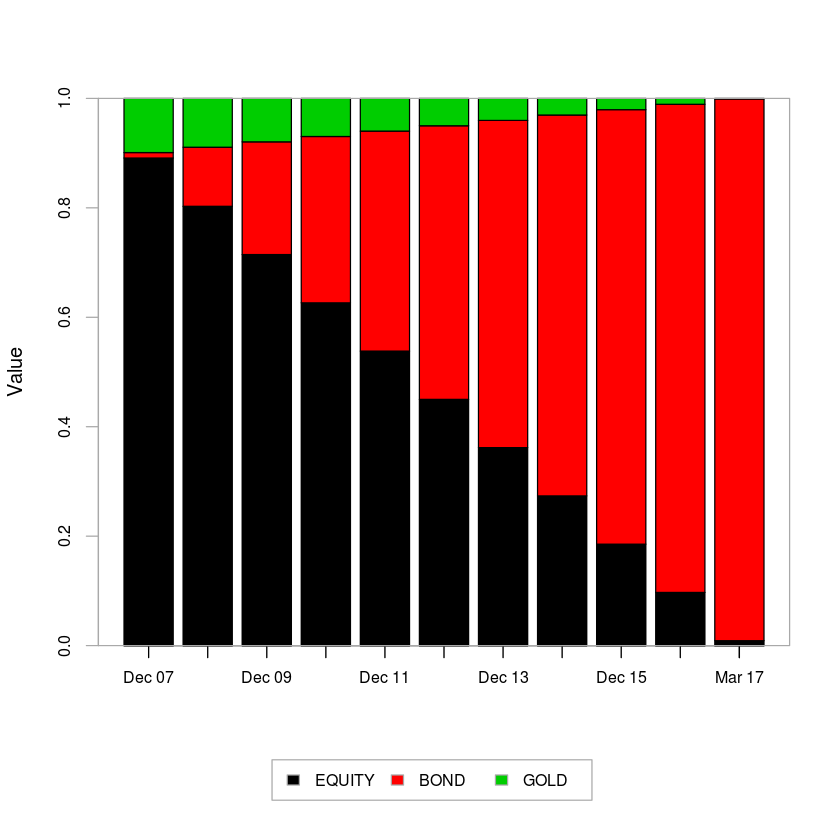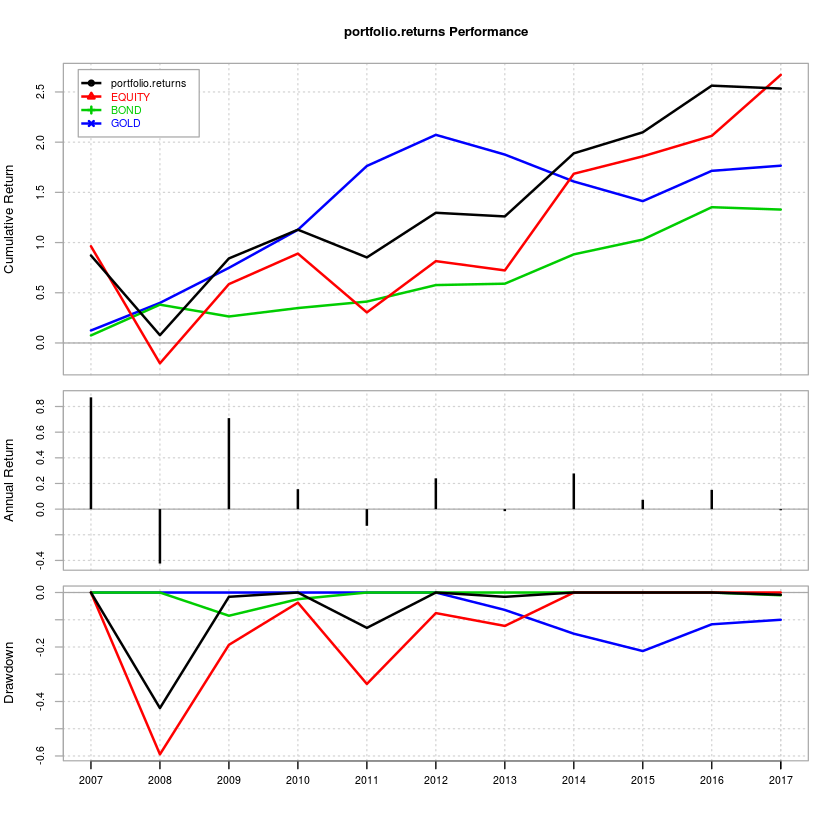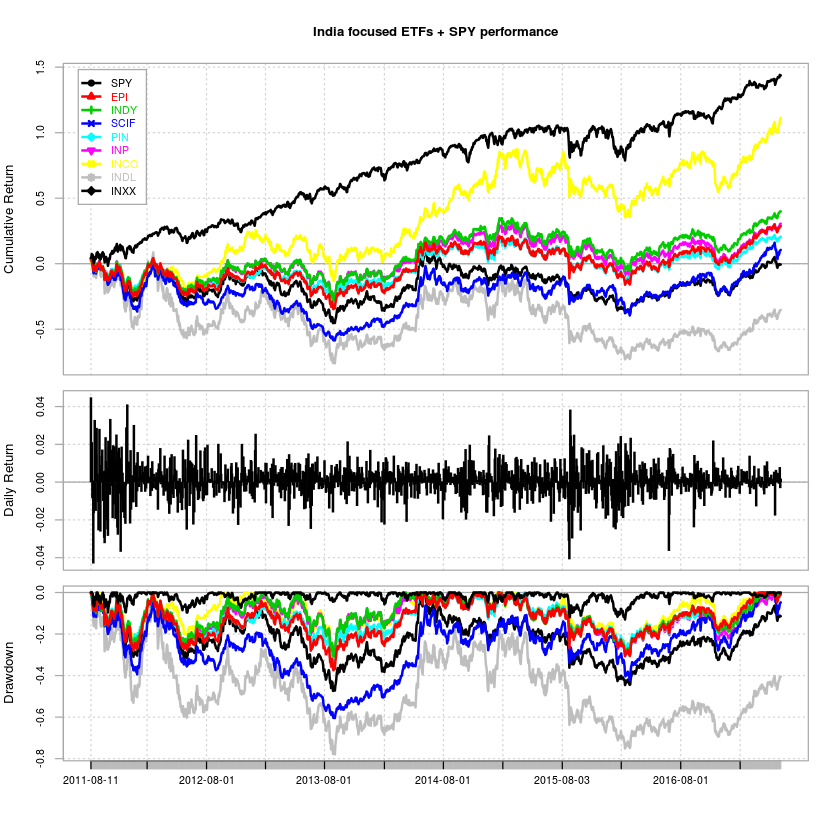A recent paper on SSR, Testing Random Walk Hypothesis: An Empirical Analysis of National Stock Exchange Indices (pdf), had me wondering if the NIFTY could indeed be modeled as an ARIMA(1,1,1) process as the author asserts.
As a first step, I wanted to check if ARIMA(1,1,1) is a given. What would be best fit be across rolling windows of different sizes? Turns out that for the most part, the best fit is ARIMA(0,0,0) aka, white noise. And the second best fits apply less than 20% of the time (Code and Results.)
Second, I wanted to check if ARIMA(1,1,1) has any forecasting ability. It does appear so (Code and Results.)
Buy & Hold Annualized return: 13.25% vs. Long/short NIFTY with different look-backs:
200: 16.75%; 500: 17.41% and 1000: 14.28%
*Not including transaction costs.
Although there is a slight advantage in using an ARIMA(1,1,1) model, I have a hard time reconciling the first set of results with the second. The advantage could very well be random.
